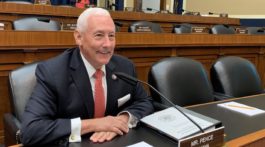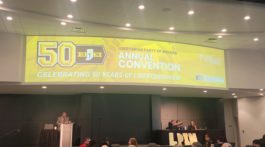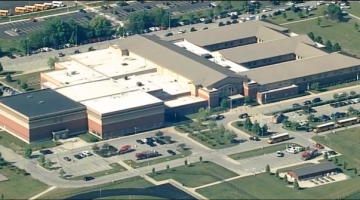By Aim CEO Matt Greller
Aim represents towns and cities of all sizes. We represent municipalities, made up of people who all want essentially the same thing, to live and work in a thriving, safe, well-run, quality community. Among the many things we do at Aim is help communities advocate for policies that allow a city or town to operate with maximum efficiency, with the greatest likelihood for long-term success. And in this legislative session, much like those in recent years, we are happy to be working cooperatively with a governor and a group of legislative leaders who value the opinions of municipal office holders. Just as in any good relationship, there are things about which we disagree.
During the summer of 2021 it was becoming increasingly clear that a change to Indiana’s business personal property tax system was in the works for this legislative session. In addition to updating our members, gathering data, and bringing together the Replace Don’t Erase coalition of other equally concerned stakeholders, we began immediately expressing our concerns to lawmakers to ensure they understood the unintended consequences of making changes to the business personal property tax revenue structure without a sustainable, permanent, and fair replacement source of revenue. These conversations were productive and involved a great deal of listening on both sides. This kind of open dialogue is a critical part of the legislative process and we learned from every single discussion.
Throughout our early meetings and in our conversations to this day we highlight many critical points about any endeavor to eliminate, reduce, or restructure the business personal property tax. Three key points include:
- It is not our intention to insert ourselves into the debate about whether Indiana’s business personal property tax system is antiquated or is in fact the “right tax” for Indiana businesses. We concur that this policy debate is occurring where it should, inside the statehouse, among the Governor and legislative leadership. Our number one message is much simpler. Forcing any elimination from local budgets without a long-term, sustainable replacement source will negatively impact our mission. Any dollar eliminated must be replaced. Thus, Replace Don’t Erase.
- A community’s assessed value will not change with a reduction in what businesses have to pay in terms of the business personal property tax. Therefore, this tax break for businesses will be shifted to someone else, our citizens. More specifically, homeowners. With Indiana’s impressive surplus, well-documented business tax climate, and willingness to use state tax credits for a portion of their business personal property tax cut, why are we discussing increased taxes for homeowners?
- Some claim that locals can grow their way out of the revenue loss associated with eliminating a portion of the business personal property tax in HB 1002. While AV continues to grow, so too do costs, necessary services, inflation, and often population.AV grows along with local tax levies so that property tax rates remain similar over time. Reducing the tax base through BPPT reduction will reduce AV growth relative to normal increases in levy and costs. This will raise rates and trigger more tax cap losses that represent a real loss to local governments. Normal growth is not a replacement mechanism any more than it represents a real windfall for local governments every year.
When the session began, there were multiple bills proposing varying levels of business personal property tax reductions, chiefly HB 1002 and SB 378. Luckily, thanks to the commitment of Senator Travis Holdman and many of his Senate colleagues, there currently isn’t any such language still “alive” today. Some have declared the issue dead for this session. For those of us who have spent more than a hot-minute inside the limestone, however, we know better. Nothing is ever dead until the gavel goes down at midnight on the last day of session.
It has been said that the proposal found in HB 1002 represented such a small percentage of the tax that city and town leaders shouldn’t care, and we should just sit back and be glad for any good news that could happen as a result. This, too, is disingenuous. Business groups began pushing for the elimination of this tax in 2014. That same year a standard tax exemption on equipment totaling $20,000 or less was implemented. Five years later that figure jumped to $40,000, and just one year ago the exemption doubled to $80,000. Is this year’s effort a push for total elimination? No, and we’ve never claimed otherwise. Is this year’s effort another clear step towards that goal? History speaks for itself.
As I mentioned, we represent communities. A group of people united by a desire to live, work, and raise families in quality places with the level of safety and service they expect and deserve. Local leaders struggle to continue providing these things at the same spending levels seen in 2002. Any cuts to this critical revenue stream are simply not possible without consequences. The dialogue we have enjoyed this session continues and we look forward to each conversation and chance to plead our case to lawmakers. Like local leaders, we know legislators also care about building, growing and maintaining quality places that attract both a talented workforce and their employers. We are hopeful that by the time sine die is declared one of these goals will not be achieved at the expense of the other.















